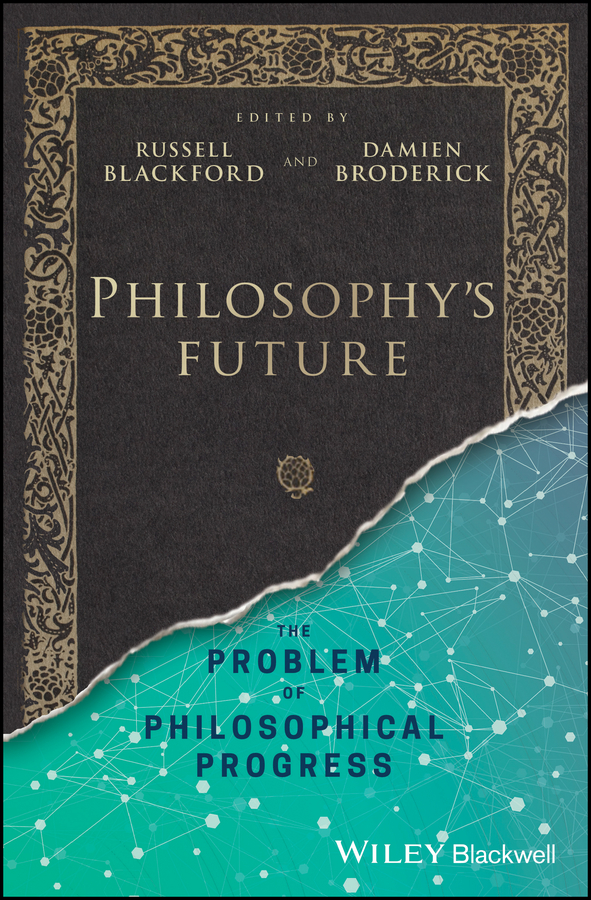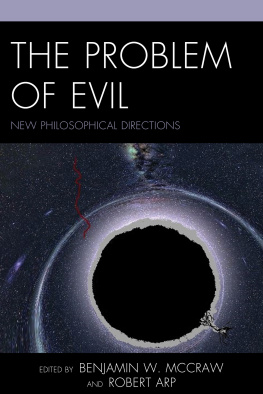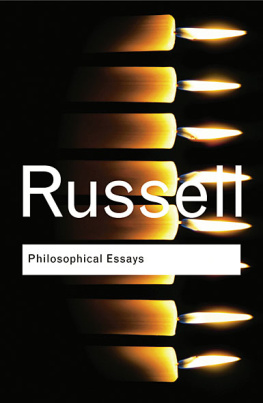
Table of Contents
List of Tables
- Chapter 06
List of Illustrations
- Chapter 16
Guide
Pages
Philosophys Future
The Problem of Philosophical Progress
Edited by Russell Blackford and Damien Broderick
This edition first published 2017
2017 John Wiley & Sons, Inc.
All rights reserved. No part of this publication may be reproduced, stored in a retrieval system, or transmitted, in any form or by any means, electronic, mechanical, photocopying, recording or otherwise, except as permitted by law. Advice on how to obtain permission to reuse material from this title is available at http://www.wiley.com/go/permissions.
The right of Russell Blackford and Damien Broderick to be identified as the authors of the editorial material in this work has been asserted in accordance with law.
Registered Office
John Wiley & Sons, Inc., 111 River Street, Hoboken, NJ 07030, USA
Editorial Office
350 Main Street, Malden, MA 021485020, USA
For details of our global editorial offices, customer services, and more information about Wiley products visit us at www.wiley.com.
Wiley also publishes its books in a variety of electronic formats and by printondemand. Some content that appears in standard print versions of this book may not be available in other formats.
Limit of Liability/Disclaimer of Warranty
While the publisher and authors have used their best efforts in preparing this book, they make no representations or warranties with respect to the accuracy or completeness of the contents of this book and specifically disclaim any implied warranties of merchantability or fitness for a particular purpose. It is sold on the understanding that the publisher is not engaged in rendering professional services and neither the publisher nor the authors shall be liable for damages arising herefrom. If professional advice or other expert assistance is required, the services of a competent professional should be sought.
Library of Congress CataloginginPublication Data
Name: Blackford, Russell, 1954 editor.
Title: Philosophys future: the problem of philosophical progress/edited by Russell Blackford Damien Broderick.
Description: Hoboken: Wiley, 2018. | Includes bibliographical references and index.
Identifiers: LCCN 2017008435 (print) | LCCN 2016058003 (ebook) | ISBN 9781119210085 (pbk.) | ISBN 9781119210092 (Adobe PDF) | ISBN 9781119210108 (ePub)
Subjects: LCSH: PhilosophyHistory21st century.
Classification: LCC B805 .P45 2018 (ebook) | LCC B805 (print) | DDC 101dc23
LC record available at https://lccn.loc.gov/2017008435
Cover design: Paul McCarthy
Cover image: blank book studiocasper / Getty Images; network background mustafahacalaki / Getty Images
To Graham Oppy,
for fellowship and support
Russell Blackford
To the ghost of Hector Monro,
Foundation Chair of Philosophy, 19611976, Monash University
Damien Broderick
Notes on Contributors
Russell Blackford is an Australian philosopher, legal scholar, and literary critic, based at the University of Newcastle, New South Wales. His books include Freedom of Religion and the Secular State (2012), Humanity Enhanced: Genetic Choice and the Challenge for Liberal Democracies (2014), and The Mystery of Moral Authority (2016). @Metamagician
Peter Boghossian is an Assistant Professor of Philosophy at Portland State University and an affiliated faculty member at Oregon Health Science University in the Division of General Internal Medicine. He is the author of A Manual for Creating Atheists. @peterboghossian
Stuart Brock received his PhD from Princeton University in 2002, previously taught at Western Washington University in the United States, and is an Associate Professor in the philosophy program at Victoria University in Wellington, New Zealand. He is currently Dean of Postgraduate Students in the Faculty of Humanities and Social Sciences, and has published work on fiction and metaphysics.
Damien Broderick holds a PhD in the literary theory of the sciences and the arts, and has written or edited some 70 books in several disciplines, including a number of prizewinning novels. The Spike (1997, 2001) was the first general treatment of the Singularity. In 2008, he edited an original science anthology, Year Million, on the prospects of humankind in the remote future, and with Russell Blackford he coedited Intelligence Unbound: The Future of Uploaded and Machine Minds (2014).
Myisha Cherry is a PhD candidate in philosophy at the University of Illinois, Chicago. She is interested in the intersection of moral psychology and political philosophy. Cherry is also a blogger for the Huffington Post and host and producer of the UnMute Podcast, a podcast where philosophy and realworld issues collide.
Karen Green is the author of The Woman of Reason (1995), Dummett: Philosophy of Language (2001), A History of Womens Political Thought in Europe, 14001700 (with Jacqueline Broad, 2009), and A History of Womens Political Thought in Europe, 17001800 (2014). During 2015 she was Rosanna and Charles Jaffin Founders Circle Member, Institute for Advanced Study, Princeton, and has an honorary appointment at The University of Melbourne.
Benj Hellie is Associate Professor of Philosophy at the University of Toronto. He works on mind and language, within a mathematized transcendental idealism inspired by Rudolf Carnap. If his own research makes progress, it is in significant part by tugging on loose strands in David Lewiss tightlyknit system.
Frank Jackson is Emeritus Professor in the School of Philosophy at The Australian National University. His books include From Metaphysics to Ethics (1998), and Language, Names, and Information (2010).
Ward E. Jones teaches philosophy at Rhodes University, and is coeditor of Philosophical Papers.
Richard Kamber is Professor of Philosophy at The College of New Jersey and President of the Association for Core Texts and Courses. He is the author of On Sartre (2000) and On Camus (2002). He has published articles on a variety of subjects, including aesthetics, existentialism, higher education, and the Holocaust.
Noretta Koertge is Professor Emeritus in History and Philosophy of Science at Indiana University and continues to teach undergraduate seminars in the Hutton Honors College. She is past editor of the journal Philosophy of Science and the New Dictionary of History of Science and a Fellow of the American Association for the Advancement of Science.
James Ladyman is Professor of Philosophy at the University of Bristol and coeditor of Studies in History and Philosophy of Modern Physics, with a PhD on the semantic approach to scientific theories and structural realism. He has been assistant, deputy and coeditor of the British Journal for the Philosophy of Science and honorary secretary of the British Society for the Philosophy of Science. He is the author of Understanding Philosophy of Science, and (with Don Ross) Every Thing Must Go: Metaphysics Naturalized.
James A. Lindsay
Next page











